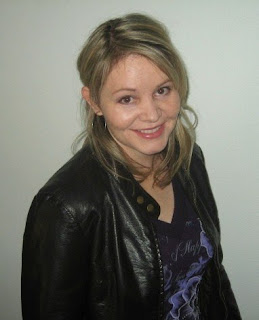By Debbie Meldrum
Since the book is showing up on so many Best of 2010 lists, including my own, it seems like a good time to talk about what I learned from it.
First, the blurb: Jack has lived his entire five years in an eleven foot by eleven foot room with Ma. Ma has been there for seven years, ever since she was abducted and imprisoned there. On his fifth birthday, Jack starts asking questions, and learns about "Outside."
The book is told in first person from Jack's point of view.
1. Kids can be resilient, which some writers forget.
Yes, Jack has been a prisoner his whole life. BUT it's the only life he's known. And Ma makes that life as pleasant as she can. They exercise, read, play games, watch TV--but no too much, dance and laugh. Jack loves Room and his life there. The only exception is Old Nick, who sometimes visits at night, while Jack is supposed to be asleep in Closet.
I think, too often, when we write about people in dire situations, the tendency is to write them as always down and depressed. People often rise above their situations. Most of us have experienced a time when everything has gone wrong, and everyone involved ends up laughing. Not after the fact, but during it. Adding a scene like that can make the story seem more true to life.
2. Anticipate the readers' questions/realizations
It seemed that every time I had a question about why Ma was doing what she was or wondered what would happen if . . . , Donoghue let me wonder just long enough and then answered the question or set that event I wondered about in motion. That makes for a satisfying read.
I've been in group critique situations where people wrote things like "Where is this? When is it happening? Who is Jack? What does he want?" on the very first paragraph of the story. Maybe I needed to attach what I thought the back of book copy would say. But critiques like that lead the writer to want to dump all the back story in the first chapter.
Resist this. If I know everything I need to know on the first page, why should I read the next 250?
3. Staying in character is key.
Donoghue does slip a few times--at least I thought so--especially toward the end of the book. Jack's narration seemed too emotionally and relationally savvy for a character with his history. Jack can do math and read better than most third graders. So there are times he sounds older than five, but that is with good reason.
I'm working on a novel with an eleven-year-old boy as the narrator. Not an easy task. Donoghue has set the bar pretty high for writing a realistic child of the opposite sex. I will do my best to write up to her level.
4. Inspiration only gets you so far.
Emma Donoghue has said that Josef Fritzl case was the original inspiration for the book. He is the man who imprisoned his own daughter in the basement as a sex slave.
Now I would understand how a crime writer would use a case like that for inspiration, as a psychological thriller, a case study of the man.
But Donoghue turned this inspiration on it's head and, of course, changed it. It is not the woman's father who abducts her. It's not a crime story. It is a psychological study, but of the boy and his mother.
Her website explains the extensive research it took to get everything right. Some of that research was, as you can imagine, harrowing. Then there was the mundane, like looking at decorating sites to get the room just right.
I'm going to look at headlines a bit differently from now on. Instead of dismissing certain stories with "that wouldn't fit my genre," I'll look at how it could if I took it from a new angle. This could open up a whole new world for my writing.
I highly recommend Room to all writers. It's not always an easy read emotionally, but it is a quick one. The pages just kept turning, because I wanted to know what would happen to Jack and Ma next. I think you'll want to know, too.

BIO:
Debbie is a daydreamer. A fact that caused her much grief during her school career but has served her well as a writer. Her short fiction has appeared in Apollo’s Lyre, The SCWP Marathon Anthology, and The S’Peaker. In addition to being a member of PPW, she belongs to Creek Writers Council—a tough but fun critique group.










